Going car-free can be a big and sometimes difficult change to make, but it can bring huge benefits to the environment, air quality, personal finances, and our mental and physical health. We spoke to a few people who have adapted their lifestyles to live without a car.
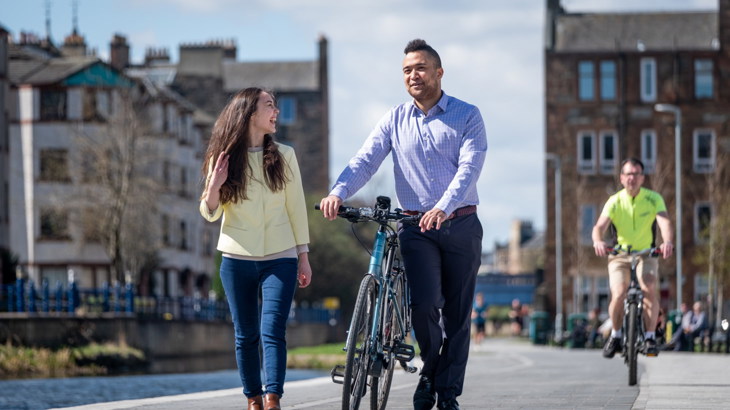
©Tony Marsh
Meg Whittaker, Portsmouth
During the Covid restrictions of 2020 and 2021, it struck me how much nicer it was on the roads with no vehicles.
So when our old car was coming close to the end of its useful life, I decided not to replace it and invested in an e-bike instead.
My partner had stopped using the car a while back and cycles everywhere, so that was a big encouragement to make the change.
I live in Portsmouth and travel around the city for my job.
The infrastructure around here isn’t always great, but the city is fairly compact so I’m never going too far for work or social events.
I feel safe on my e-bike; it has a comfortable seating position and I know I have the power there if I ever need to speed up and tackle any busy junctions.
The extra power also means I can go longer distances.
I often take it on the train for trips away, my partner and I were already using bikes for holidays and so on, so it’s been a natural transition.
When it comes to shopping, I no longer do big supermarket trips, but a few smaller, more frequent ones by foot.
And if I do ever need to move anything big around, my local bike shop rents out cargo bikes, which I’d consider in the future.
When it’s rainy, it's easy to feel a bit put off from cycling, but it's not the end of the world.
And if it's an essential trip with others then I can sometimes get a lift.
Overall, I haven’t missed the car since getting rid of it.
Although I haven’t calculated it, I definitely feel like I’ve saved money, and I feel a decent bit fitter too.
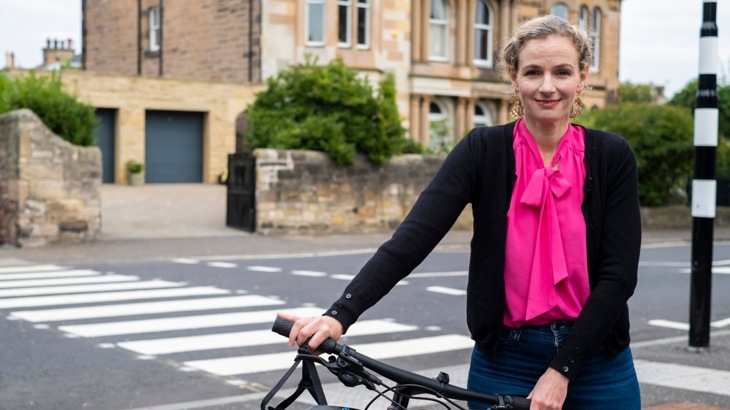
Michaela Jackson. ©Brian Sweeney
Michaela Jackson, Edinburgh
Our car broke down, and as the repairs were so expensive we decided to try living without one for a while.
One year on and we’re still really enjoying getting around Edinburgh by foot, bike and bus.
As a family we have discovered a lot of new cycling routes all across the city.
My 10-year-old son enjoys cycling to school and my 13-year-old daughter walks to school with her friends.
She also takes the bus by herself and has gained independence.
I love that they are getting some exercise just by getting to and from school.
I have also joined a cycling club with other women and it’s been great sharing knowledge about cycling routes.
The support from other women in the group has definitely helped to build my confidence in cycling on the road.
Deciding to live without a car has improved the quality of our everyday life.
We are fitter, healthier, saving money and journeys are no longer stressful.
I encourage everyone to take this step if they can.
Living without our own car can be challenging but we have definitely gained more than we have lost.
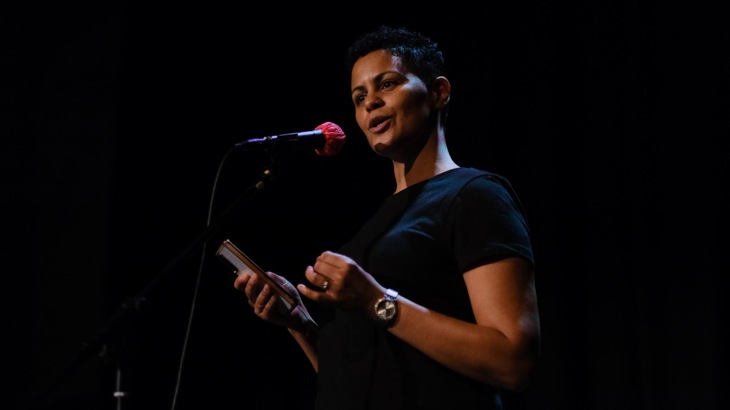
Jemma Hathaway. ©Sam Cavender
Jemma Hathaway, Bristol
I love living a car-free life and can happily say I’ve never owned a car.
It’s just not something I’ve ever felt was necessary.
I’ve always lived centrally in cities and been within walking or cycling distance of everything I need.
Car ownership would be too expensive for me as I am used to having low outgoings for transport.
It can be a challenge at times, such as with the weekly food shops or taking longer trips, but online shopping and public transport work well for me.
It can also be stressful if there are public transport disruptions, but I prefer this occasional difficulty to the ongoing expense and carbon footprint of a car.
I also love the fact that if there is a social event or trip with friends, I never need to volunteer as the designated driver!
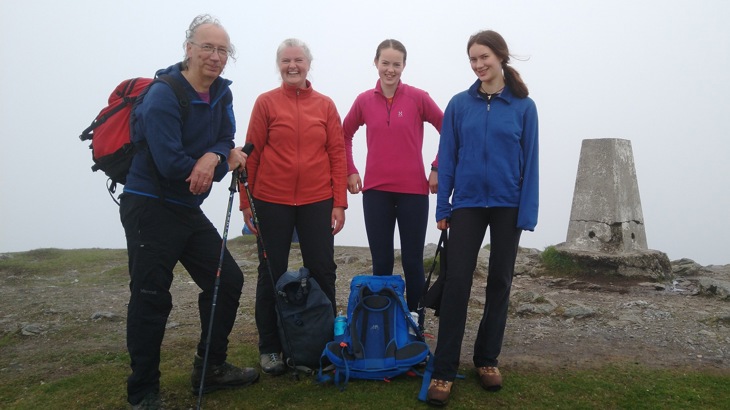
Daniel and his family exploring the Scottish Higlands.
Daniel Prince, Leith
Laura, Hannah, Gaia and myself (aka the Prince family) used to do about 10,000 miles a year in our car.
We’d always avoided flying and would instead pack the car up with all our camping equipment and go off for weekends to the Scottish Highlands or longer trips to the South of France, Czech Republic or Sweden.
As the years went by, we became more aware of the impact of driving our diesel cars on long distances.
Added to that, driving in the city had become just one big headache, so we began using public transport more and more.
The big change came in 2019 when we decided to go to France by train and take our bicycles.
That knocked a good 2,000 miles off our annual mileage and was, in some ways, much more relaxing.
Nowadays our relationship with our car has changed and we have some informal rules that we tend to apply.
City driving: No thank you, unless it is unavoidable, perhaps moving a heavy or bulky object.
City to city: Let the train take the strain if that's going to work.
Trips to the Highlands with our tents and walking boots, this feels like better use of our car.
It is unlikely we’ll be going totally car-free in the foreseeable future, but we are definitely using the car less.
We’ve been enjoying the more relaxed ways of travelling offered by active travel and/or public transport.
Over the last year we did around 2,500 miles, generally with a full car. That feels like a few steps in the right direction.
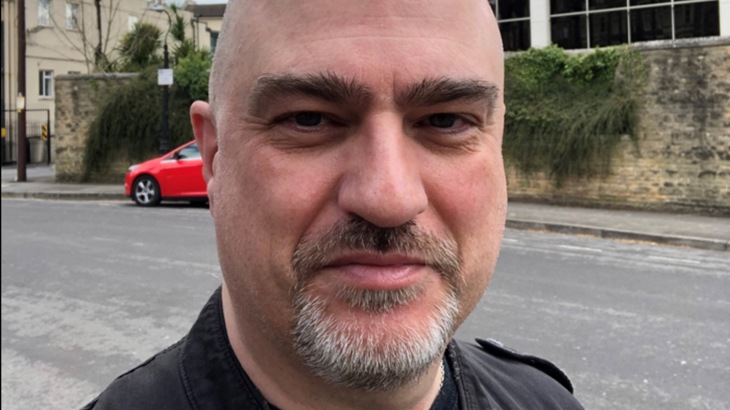
Chris Halliday.
Chris Halliday, Bristol
Before I gave up my car I was very reliant on it, even for short journeys.
At weekends I would use it to trek out of town, and during the week I was always jumping in it to meet friends and pick up shopping.
I rarely used public transport, and only walked if I knew there wouldn’t be parking at the other end of the journey.
I didn’t believe that I could get by without a car.
I gave it up partly because of a big insurance renewal bill, but also because I’d been unemployed for several months the previous year and hadn’t used it.
Far from being unable to manage without it, I found that I didn’t miss it.
I appreciated my local area more, rediscovered my joy in walking, explored public transport in Bristol, and significantly reduced my financial outgoings.
Initially I did find socialising more difficult, but this improved as I became more familiar with my transport options.
There are times when not having a car has been stressful (most notably when moving house), but otherwise I have found it far less so.
Having to plan my transport needs has resulted in me being far more “present” and mindful when I do travel.
I’ve also found that walking and using public transport gives me more time to think, which has had an unanticipated positive effect on my mental health.
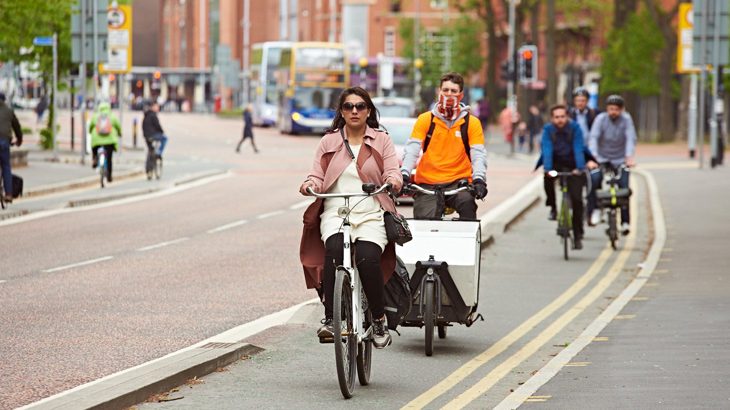
Many people have discovered a greater sense of freedom since making the change from driving to walking and cycling. ©Transport for Greater Manchester
Mark Harrison, Easton
Growing up in a very rural area, where we’d have one bus a week, I’d owned a car since the day I turned 17.
My car meant freedom to me at that age, and even over the last 10 years or so raising two young kids, I’d felt like someone who would always own a car.
However, I’d been having nagging feelings over the past 12-18 months about how little I used my car, particularly with so many of my journeys being less than two miles.
I’d also taken advantage of the cycle to work scheme since joining Sustrans and had been really enjoying cycling regularly.
So I made the change and got rid of my car, which allowed me to zero out some persistent debt.
This was actually one of my first big realisations after going car-free – so much of the cost of car ownership is hidden.
A few times a year you get hit with a bill (MOT, service, insurance, tax) and for me, it was once a month to fill it up.
Somehow, much of this didn’t really hit me as ’car-costs’.
Now, having joined a car club, initially renting a car for a couple of hours feels expensive (around £15 for 2 hours).
This has made me really reassess when I do and don’t need a car.
I would have thought that life would be more stressful, but actually it’s simply reinforced how little I need a car, other than one or two trips per month.
And realising that I’m therefore spending around £30 a month on a car, but not having two or three crunch points annually that squeeze my finances (my most recent service ended up being £600+).
These changes have helped me feel more connected to Bristol again.
I realised that when I first moved here in my 20s (and still had an active social life!) I would constantly be walking and cycling around town.
I feel like I’ve re-found that joy in my city now, and I’m glad to be sharing these learnings with my children too.
Considering going car-free? Read our five tips on how to make this lifestyle change.
Read how one family ditched the car for an active school run.
Find out more about creating neighbourhoods which reduce our car dependency.





